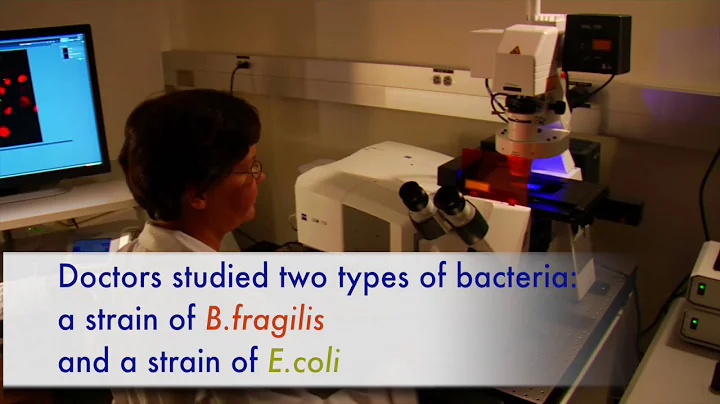Metabolome alterations present in colorectal cancer (CRC) enable cancer progression, while a healthy gut microbiome inhibits tumor growth in colorectal cancer cells. Researchers at the University of Michigan Medical School found that the fecal metabolite reuterin, in particular, has cytotoxic effects in CRC cell lines and in vivo. Lead researcher Joshua W. Goyert of the University of Michigan Medical School and the University of Michigan Rogers Cancer Center reported the findings at the 2022 NCCN Annual Meeting and noted that this finding may have important pharmacological implications.

Specific genetic mutations, lifestyle, diet, and general inflammatory signatures have been associated with the development and progression of colorectal disease, but the role of the microbiome in the disease process is not well understood. Recent metagenomic work described stage-specific changes in the microbiome throughout CRC progression. On this basis, Goyert et al. further studied how these microorganisms and their metabolites affect the growth and development of CRC.
To do this, the researchers studied fecal metabolites of bacterial origin. CRC cell proliferation experiments found that fecal metabolites isolated from healthy controls had a significant inhibitory effect on cancer cell proliferation, while fecal metabolites isolated from colorectal cancer patients grew more rapidly than healthy human donors. Faster and less inhibited.
Fecal metabolites isolated by researchers from a genetic tumorigenic mouse model have similar effects on CRC cell proliferation - fecal metabolites from healthy mice have a significant inhibitory effect on CRC cell proliferation in vitro, while fecal metabolites from diseased mice have a significant inhibitory effect on CRC cell proliferation in vitro It has no inhibitory effect on cell proliferation .
Non-targeted metabolomics identified the 50 most abundant bacterially derived metabolites in wild-type mice, among which reuterin produced by Lactobacillus reuteri was the most dominant metabolite that inhibited CRC cell proliferation. A series of growth screens identified reuterin as having growth-inhibitory properties at concentrations as low as 10 μM. Interestingly, the growth inhibitory effect of reuterin is limited to cancer cells, and low doses have significant effects on CRC cell lines; however, reuterin cannot inhibit the proliferation of healthy human intestinal cells.
The researchers then sought to characterize the mechanism by which reuterin inhibits CRC cell growth. From targeted metabolomics, the researchers noticed that glutathione metabolism was upregulated 6-fold in reuterin-treated cells. In addition, reactive oxygen species were significantly increased in reuterin-treated CRC cells by flow cytometry detection, while reuterin-treated healthy intestinal cell lines did not have the same increase in reactive oxygen species.
uses a xenograft model, injecting SW480 CRC cells into nude mice , and administering Lactobacillus reuteri by gavage. Tumor volume was significantly reduced in mice gavaged with Lactobacillus reuteri compared with mice gavaged with phosphate-buffered saline. From a genetic mouse line, it was found that mice fed Lactobacillus reuteri had significantly higher survival rates than mice fed phosphate-buffered saline.
experiments have proven that the microbiome has a growth inhibitory effect on CRC cells, especially the reuterin complex, which can reduce oxidative stress of CRC cells, inhibit tumor proliferation and tumor volume in in vivo models.
Goyert finally pointed out in the report that fecal microbiota from healthy donors inhibited the growth of colorectal cancer cells in vitro. Reuterin preferentially inhibits the growth of intestinal cancer cells by inducing oxidative stress in colorectal cancer cells. The results are incredible. Over time, metabolites produced by this microbiome may have great pharmacological value but remain to be explored.








![Rethinking Physics Informed Neural Networks [NeurIPS'21] - DayDayNews](https://i.ytimg.com/vi/qYmkUXH7TCY/hq720.jpg?sqp=-oaymwEcCNAFEJQDSFXyq4qpAw4IARUAAIhCGAFwAcABBg==&rs=AOn4CLDq7F6iLHKhjmAFymJhtlcYwaXiMw)
![AI/ML+Physics Part 1: Choosing what to model [Physics Informed Machine Learning] - DayDayNews](https://i.ytimg.com/vi/ARMk955pGbg/hq720.jpg?sqp=-oaymwEcCNAFEJQDSFXyq4qpAw4IARUAAIhCGAFwAcABBg==&rs=AOn4CLBMVhxazCgh0pAm1KCjDm3G5IBQXw)



